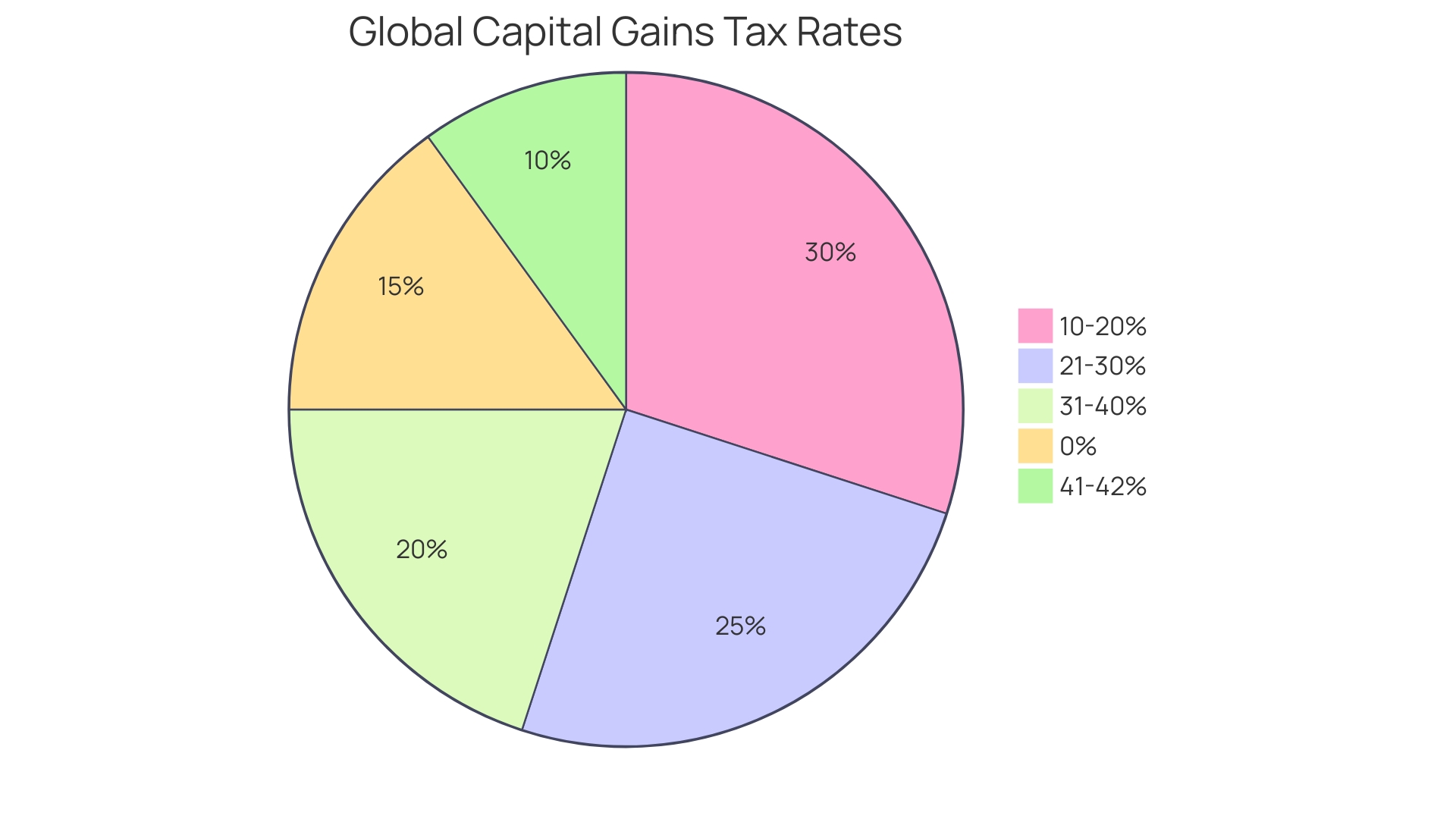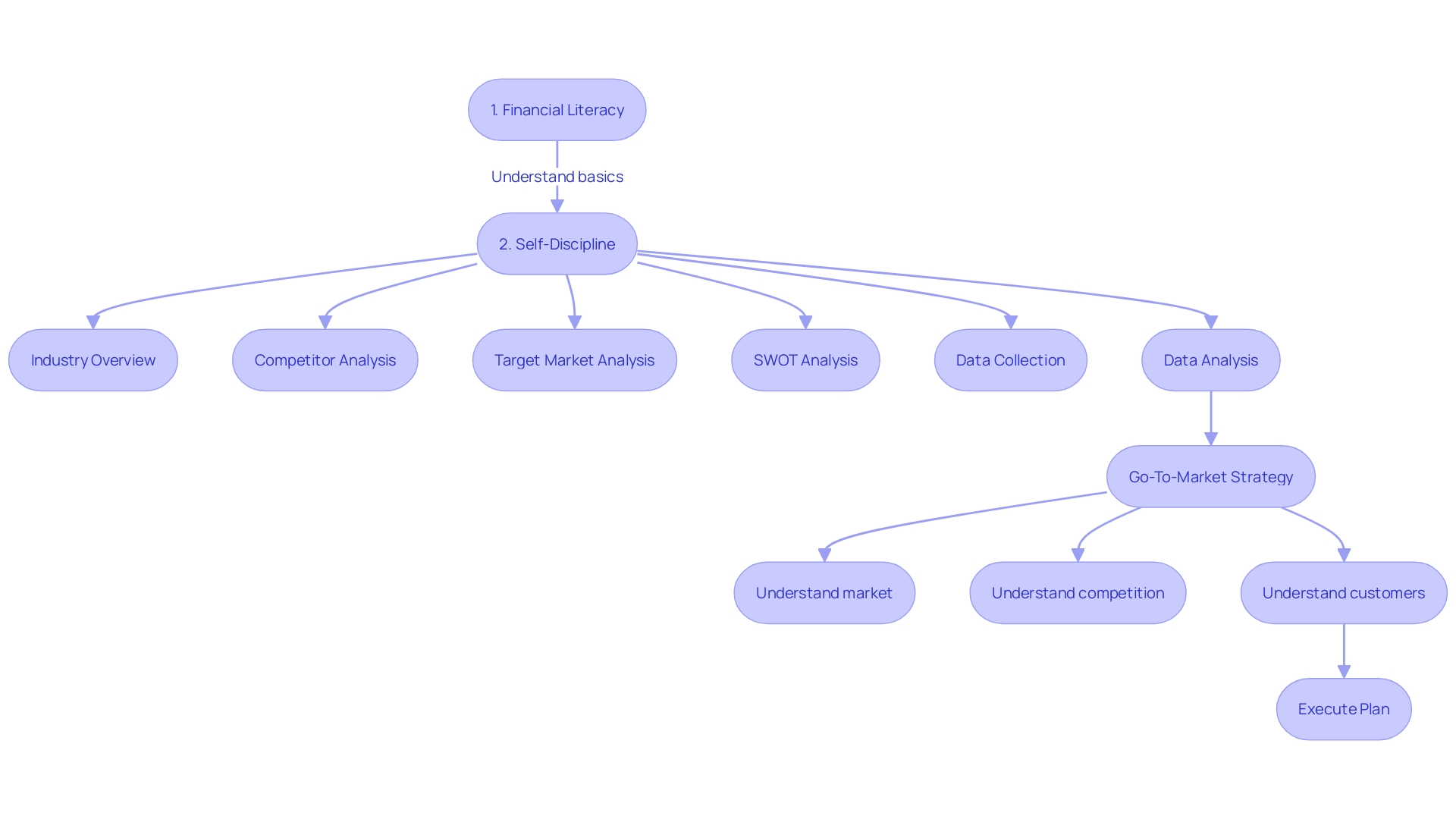Introduction
Are you considering selling your business and thinking about maximizing your profits ? Knowing about capital gains and reinvestment is key to attaining prosperity in the long run! Capital gains refer to the profits made from asset sales; although they are income sources, by nature; reinvesting them could potentially enhance your investment returns significantly.
By putting your money into Real Estate Investment Trust (REIT) or stocks market options you can take advantage of compound interest. Create a consistent income flow over time; but its crucial to understand the specifics of capital gains tax and the different tax rates found in various countries around the globe. Moreover it is essential to choose the reinvestment strategies such as like utilizing 1031 Exchange method or diversifying your investment portfolio to ensure financial stability, for the future.
Crafting a plan for reinvesting funds and establishing financial objectives while spreading out your investment interests are essential actions to boost your financial advancement and construct a sturdy investment portfolio. Whether you operate a business or engage in investing activities comprehending gains from capital and reinvestment is vital, for optimizing your profits and safeguarding your well being.
Understanding Capital Gains and Reinvestment
The earnings from selling assets such as your business known as capital gains play a role in determining the financial result of selling your business entity. These profits aren't simply kept for oneself. Are liable to taxation requirements. Nonetheless, by reinvesting the funds, into the business or other ventures can potentially enhance your overall returns on your initial capital. For instance some investors have opted to invest in Real Estate Investment Trust (REIT) with consideration and research into the suitable REIT options one can potentially create a sizeable monthly income stream from dividends. One example includes a REIT portfolio that has the potential to generate $1k monthly from a capital of around $139k+. This approach harnesses the advantages of compounding interest, like the remarkable compounding effect seen in the sale of Manhattan ages ago – where a mere $24 could have grown into trillions today.
Furthermore grasping the workings of the stock market is crucial since stocks have the potential to outperform inflation significantly in the run. Consistently allocating funds to a diverse portfolio, which includes affordable index funds, can lead to significant capital growth. This strategy exemplifies the concept of compounding, where your profits produce earnings making the stock market a fundamental component of wealth accumulation tactics.
When it comes to investing money in ways to grow your wealth over time at a steady pace and create a reliable source of income for yourself or others in the future dividends are a standout option worth considering. Take companies such as Procter & Gamble as an example. They have a reputation for paying out dividends that increase over time which benefits all shareholders regardless of how many shares they own. The real value of a dividend lies not in the fact that it exists but in its growth potential, which reflects how successful a company can be in navigating through changes and uncertainties, in the market.
Considering the current economic circumstances and recent measures implemented by the Federal Reserve to control inflation and avoid an economic decline, it is now more important than ever to have a strong understanding of capital profits. Apply your comprehension alongside a well-thought-out financial strategy to maximize your earnings and guarantee financial stability after selling your business.
Determining Capital Gains Tax
It's important to understand the details of capital profits tax when you're considering selling a business or an investment opportunity. Capital earnings essentially refer to the profits made from selling an asset that has increased in value over time. These earnings are classified as either long-term or short-term depending on the duration the asset was held before being sold. Earnings from assets held for longer than a year are susceptible to tax rates than profits from assets held for a shorter duration.
Tax rates on investment profits differ greatly globally. For instance EU countries typically tax capital gains at around 18%. Yet these rates can vary widely; in Denmark they can go high as 42% while in places like Belgium and Slovenia they can be as low as zero under specific circumstances. Every nation has its rules and limits regarding taxes on such earnings which means that the amount you owe, after a successful sale can vary considerably depending on where it takes place and what you are selling.
When you sell your home and make a profit on the sale. Lets say $750k. You might end up owing a significant amount in capital returns tax; anywhere from tens of thousands to well, over a hundred thousand dollars potentially! So it's really important to have an understanding of the tax consequences before you go ahead with the sale.
It's important to remember that capital returns apply not only to physical assets like property but also to investments like stocks and bonds and even digital currencies such as cryptocurrencies. If terms like 'cost basis or 'adjusted basis' are unfamiliar to you, especially when dealing with inherited property or gifts received, it is recommended to seek guidance from a tax specialist. Usually when someone inherits property the value used is what it was worth when the previous owner passed known as 'stepped up basis. This can have an effect, on how much capital gains tax needs to be paid.
Considering the characteristics of capital gains tax and the constantly changing environment of tax regulations, it is essential to stay informed and seek advice from professionals, in order to comply with regulations and optimize your tax benefits.

Identifying Reinvestment Options
When you sell a business and want to maximize your earnings by reinvesting to ensure the security of your finances and facilitate their further growth; one common approach is the 1031 Exchange method that allows you to defer paying taxes on your capital gains when you invest the funds into a comparable property instead. Real estate investors often find this strategy advantageous when they aim to broaden their property portfolio; although it does come with strict time constraints and the need to hire an expert intermediary to manage the sale funds. Which adds extra expenses to consider.
Diversifying your portfolio by putting money into stocks and bonds can offer chances for growth in the long run. It's important to do research and seek advice from a financial advisor to make sure that these financial commitments align with your risk tolerance and financial objectives.
For aspiring business owners looking to start a venture reinvesting earnings, into a new business might be a wise decision leveraging previous knowledge and assets for future accomplishments. With economic times and the looming possibility of downturn this reinvestment could serve as a proactive measure to safeguard your financial investments from recession impacts.
Transferring profits into retirement funds such as IRAs or 401(k)s is another way to safeguard your future effectively by taking advantage of tax benefits; however it's important to seek advice, from a financial expert to understand the contribution restrictions and advantages clearly.
Comprehending the effect of capital gains is essential since the IRS regards them as earnings and necessitates payments to be made accordingly depending on your income bracket and whether the gains are short-term or long-term; elevated rates typically apply to short-term gains.
When deciding among these choices to manage your finances better and minimize taxes as an investor or business owner in the run; take into account the advice of CPAs Amanda Han and Matthew MacFarland, on implementing proactive tax planning techniques effectively.
Developing a Reinvestment Strategy
Developing a strategy, for investigating earnings is essential to improve your financial advancement and stability efficiently. Kick off by setting financial goals for yourself. Whether you aim for building wealth in the run or aiming for immediate earnings or a mix of both will guide your financial decisions accurately.
Firstly make sure to conduct research and careful investigation. Assess the different options for allocating funds by considering the potential gains and drawbacks associated with current market trends and the level of expertise needed to manage these financial ventures effectively.
It's a good idea to seek guidance from a financial advisor or expert who can clarify the complexities of investing and evaluate risks while developing a customized approach based on your specific circumstances.
It's crucial to diversify your portfolio to reduce risks effectively and increase the chances of success in your assets by spreading your reinvested profits, among various asset classes and regions efficiently.
Ensure to observe and frequently examine and reassess your financial ventures to stay current with market changes and make modifications, as necessary, to align with your objectives.
By following these guidelines carefully you set yourself up to make thought out choices and build a strong investment portfolio that aligns with your financial goals.

Conclusion
To sum up the discussion; grasping the concepts of capital gains and reinvestment plays a role in maximizing profits and securing your long term financial well being. Reinvesting your capital gains offers the opportunity to boost your investment returns substantially. Considering Real Estate Investment Trust (REIT)s and stock market investments are choices, for establishing a steady income stream over an extended period.
When calculating capital gains tax obligations on the sale of a business or investment property it's important to take into account how long you've owned the asset and the varying tax rates across regions. Understanding the tax implications in advance is key, to making sound financial decisions.
When it comes to finding ways to reinvest your money after a sale or investment payout is crucially important in the financial world. One popular method known as the 1031 Exchange enables real estate investors to delay paying taxes by putting their profits into another property of similar value. Apart from real estate options like this one investors also commonly consider putting their money into stocks or bonds or even venturing into entrepreneurship by starting a business as alternative avenues, for reinvestments.
Creating a plan for reinvesting is vital to improving stability and growth; establish specific financial objectives and conduct in depth research while spreading out investments to minimize risks consistently review and modify your approach in response, to market shifts and individual situations.
To sum it up nicely; grasping capital gains and reinvestment can help boost your earnings and protect your stability in the long run! Create a strategy for reinvesting your funds and set financial goals while also diversifying your investment portfolio to spread out risks and maximize potential returns on investments, with careful thought and wise choices resulting in a robust investment portfolio that fits your aspirations and secures a stable future for you.




